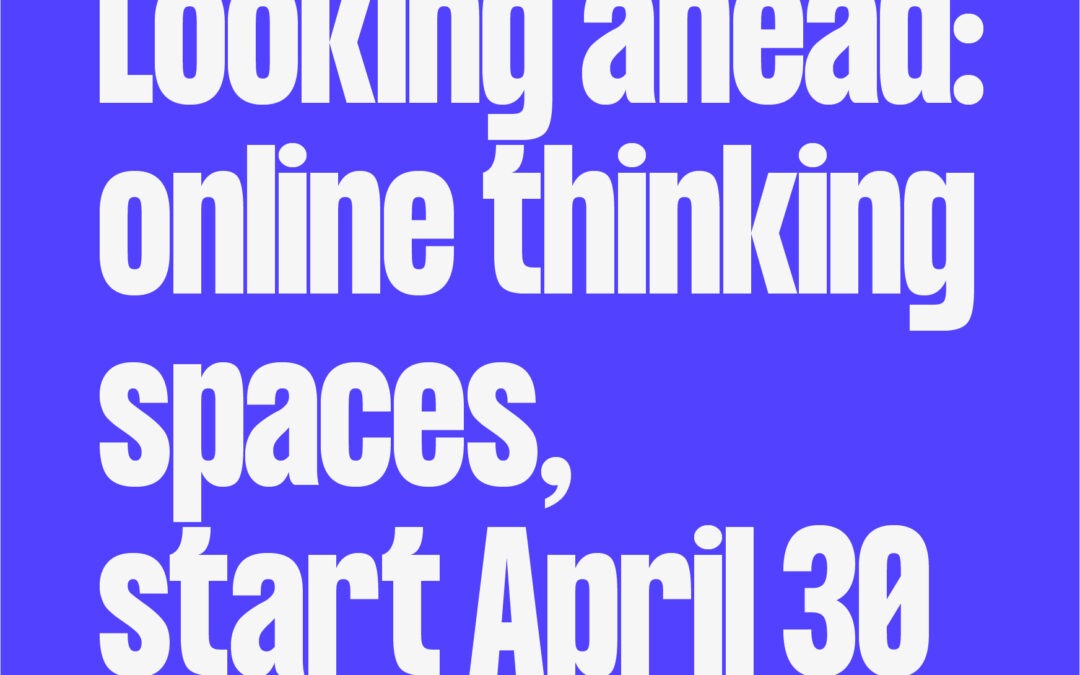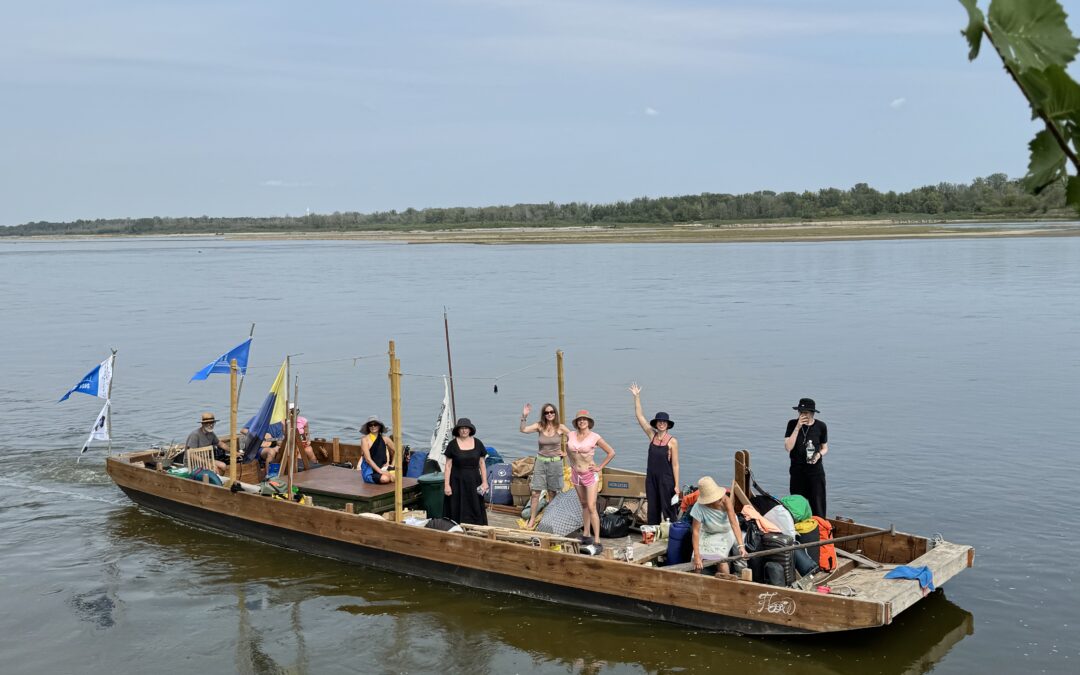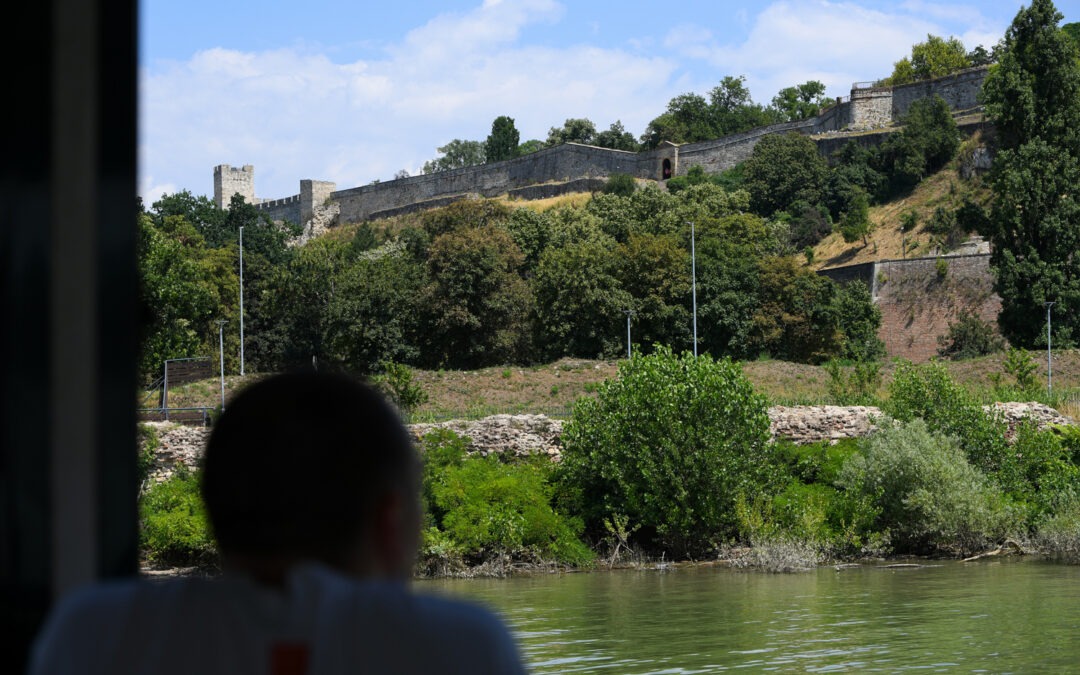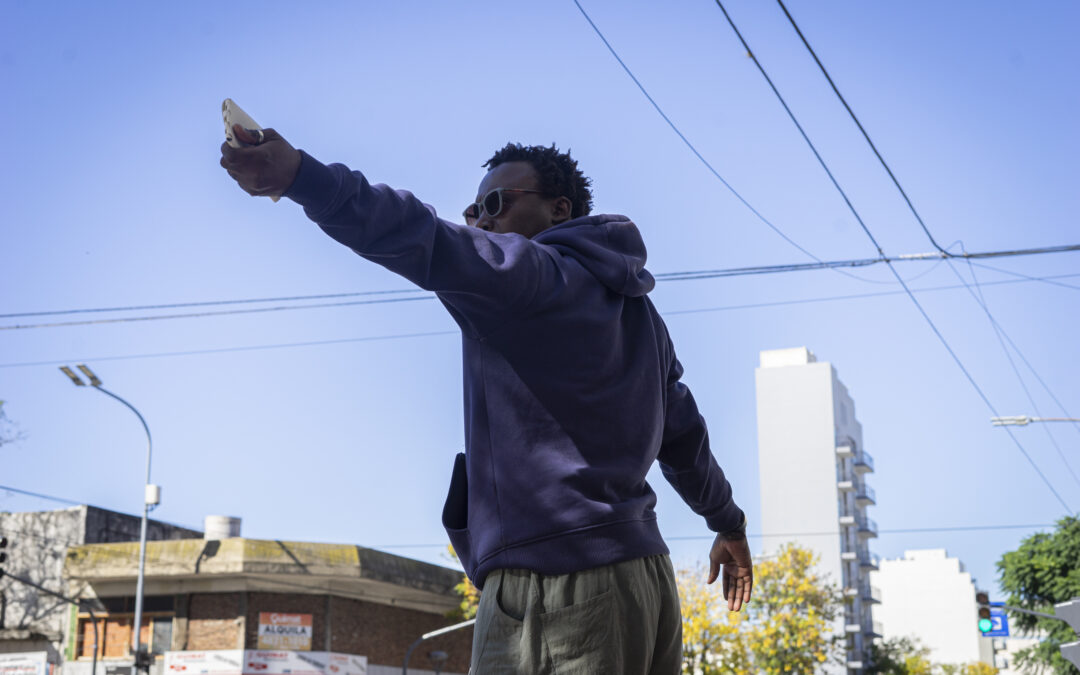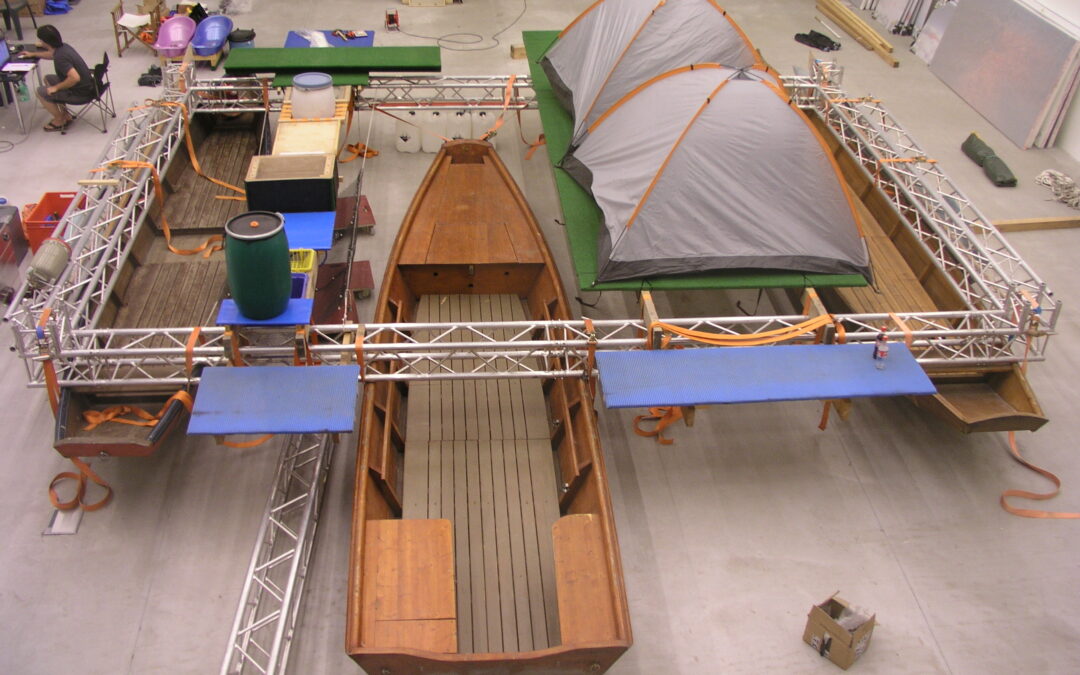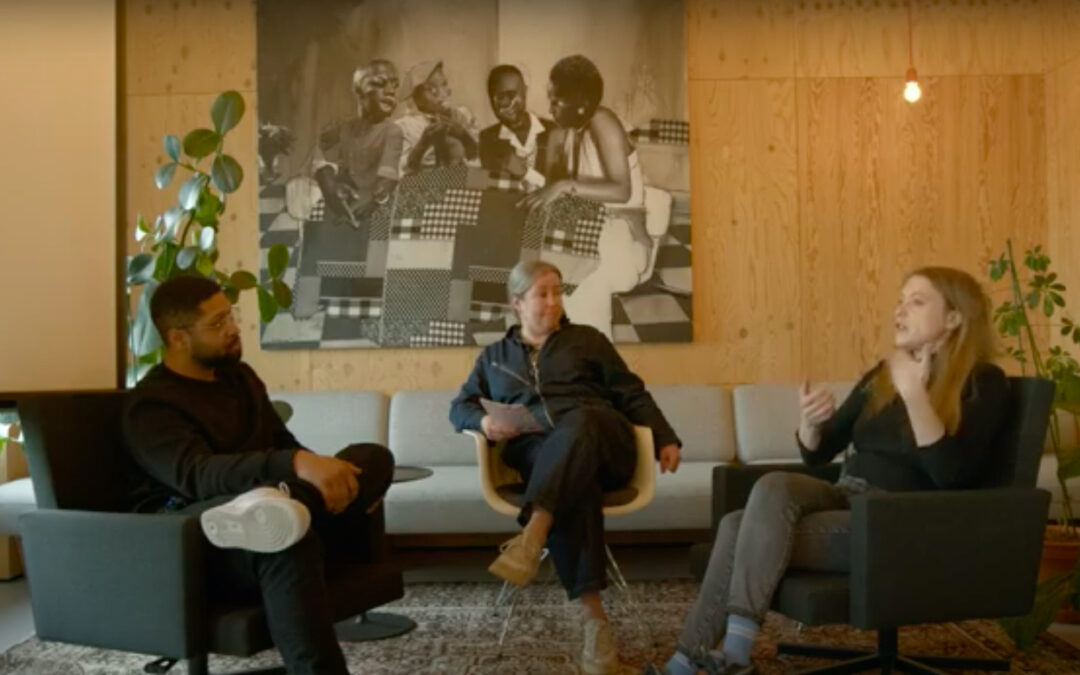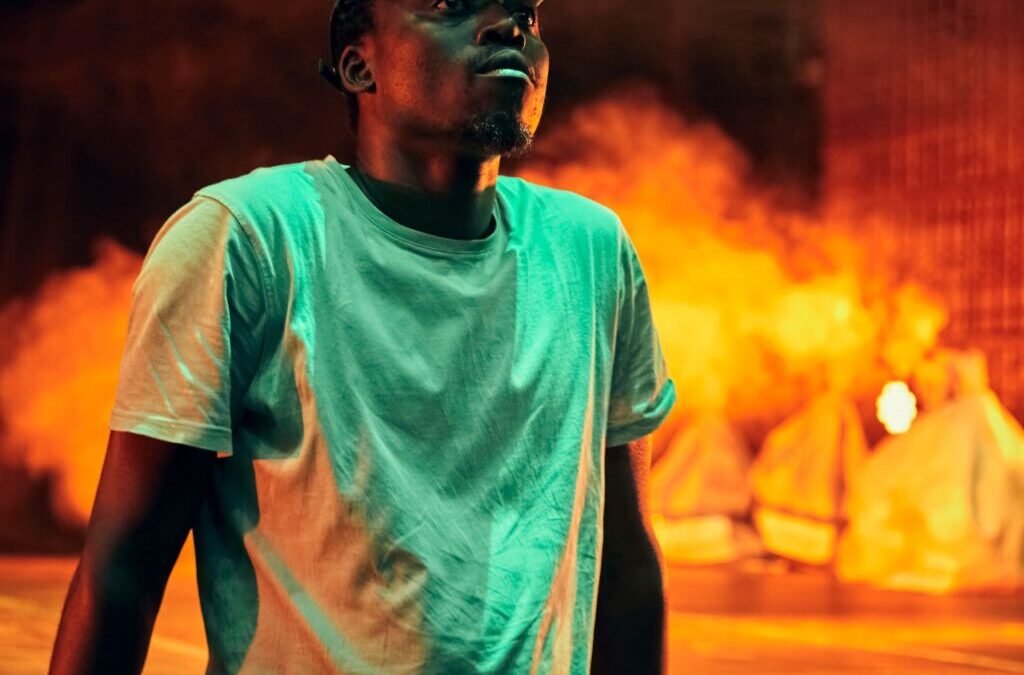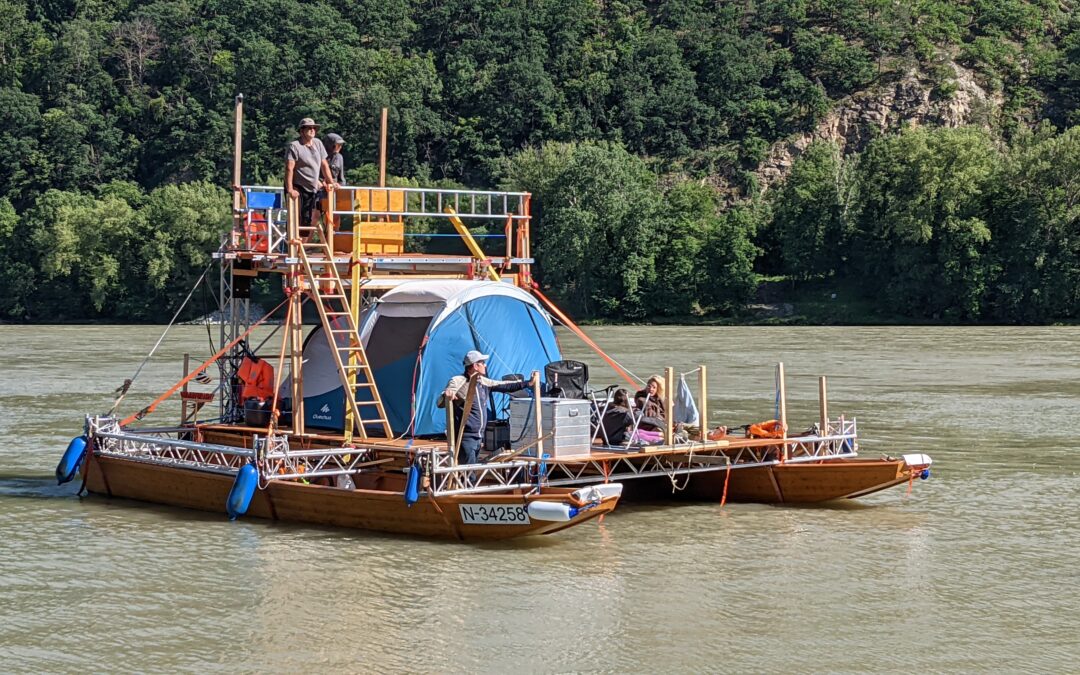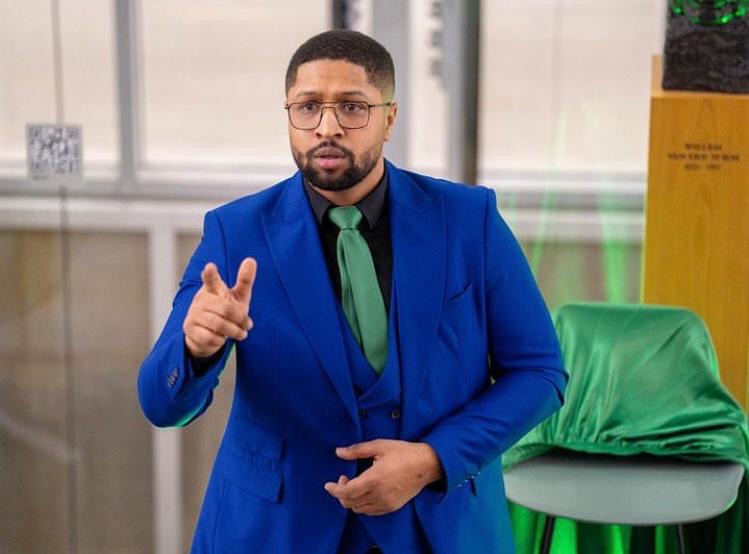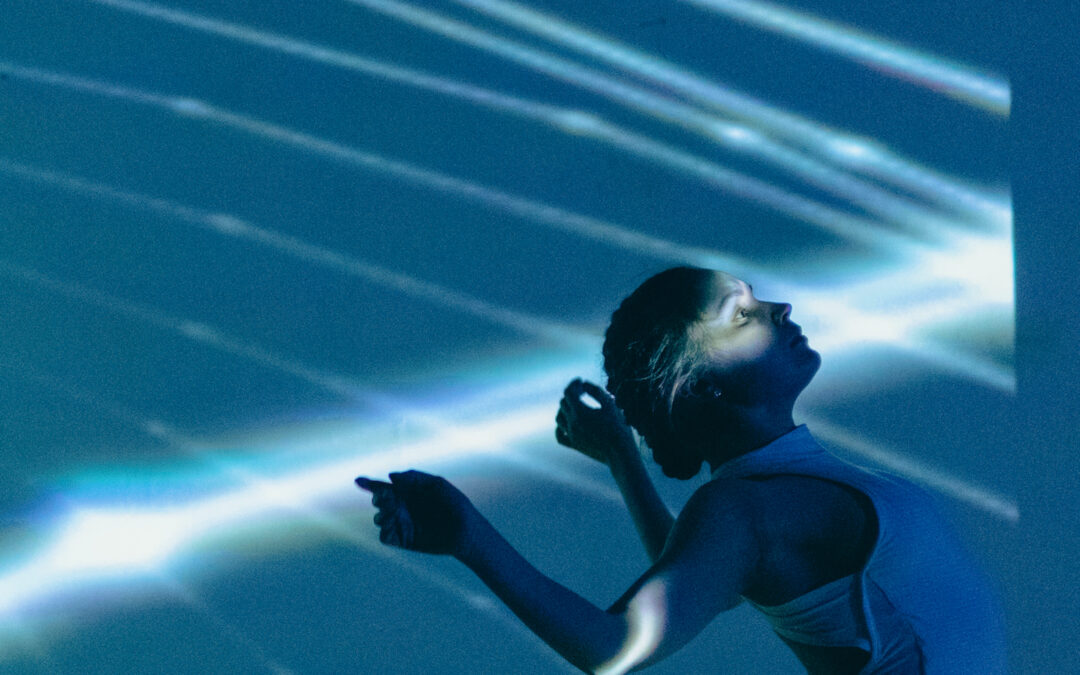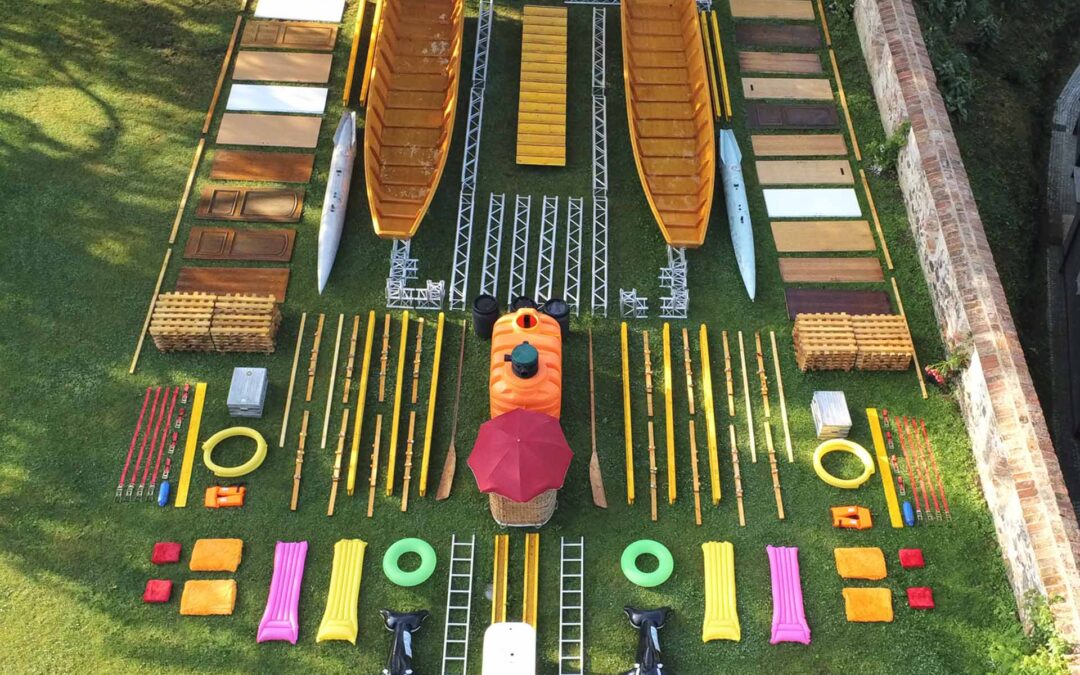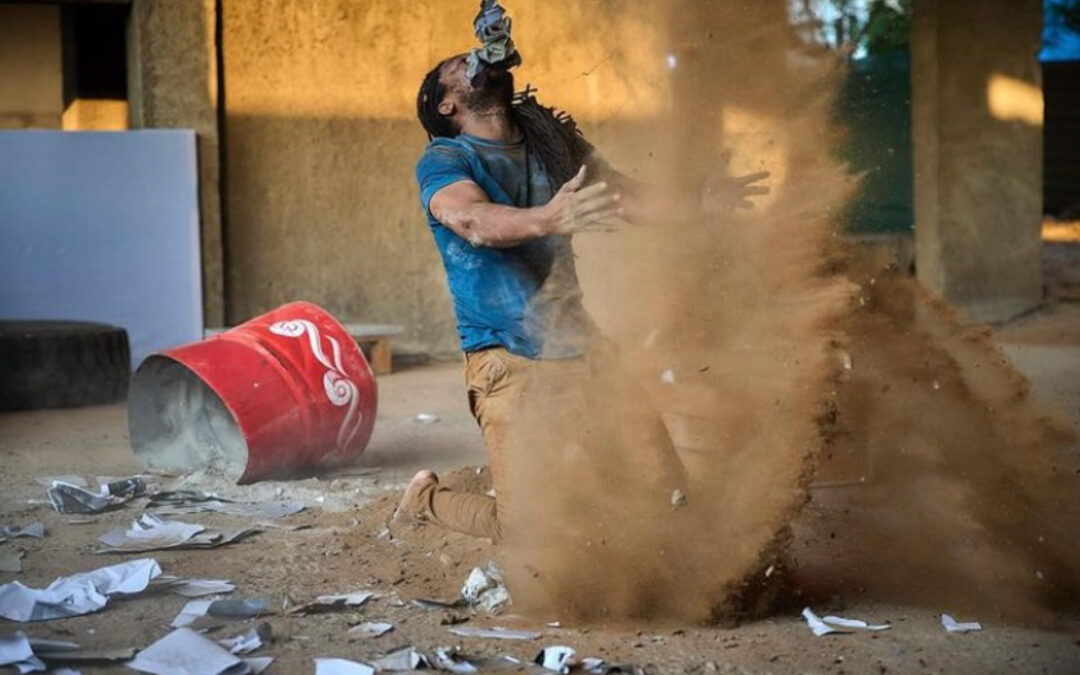“In the wholeheartedness of concentration, world and self begin to cohere. With that state comes an enlarging: of what may be known, what may be felt, what may be done.” Jane Hirschfield, Nine Gates
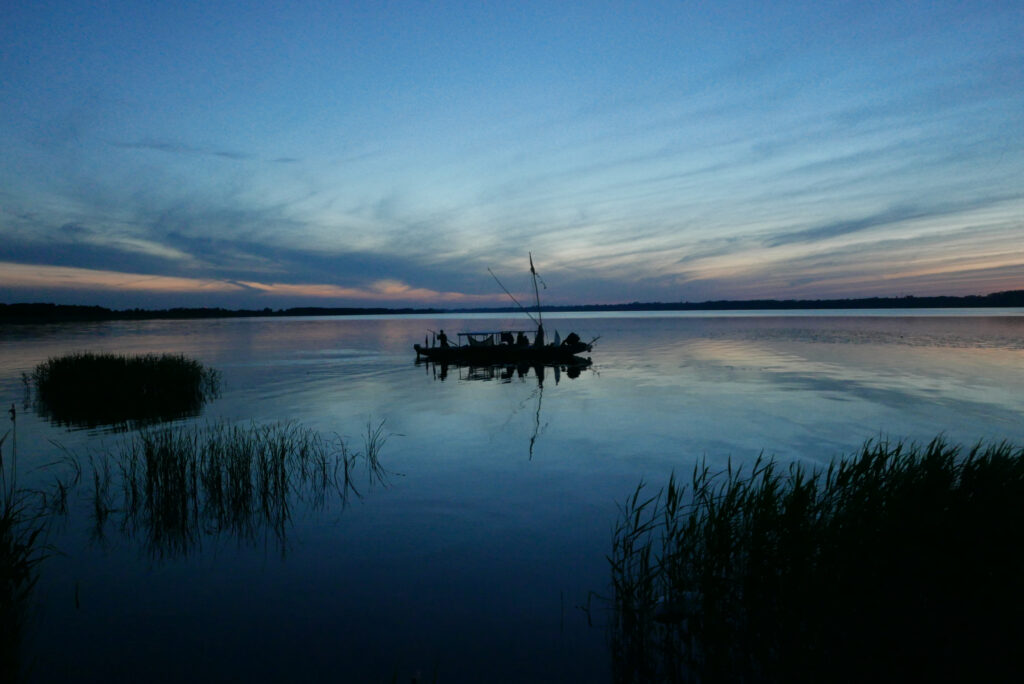
Credit: @flow
We sat down with Agnieszka Brzezanska and Ewa Ciepielewska, co-founders of FLOW and associate curators of Liquid Becomings, and curator Maria Kozlowska who will be sailing and curating the Vistula journey for The European Pavilion 2024: Liquid Becomings from 30 August until 30 September.
This week they created a prologue to FLOW 2024 first in Gdansk with a meeting at the Gdansk Shipyard. From there they travelled by boat to Elblag to open FLOW’s retrospective exhibition in partnership with Centrum Sztuki Galeria Elblag on 4 July. These are the first official events of The European Pavillion 2024 on the Vistula River.
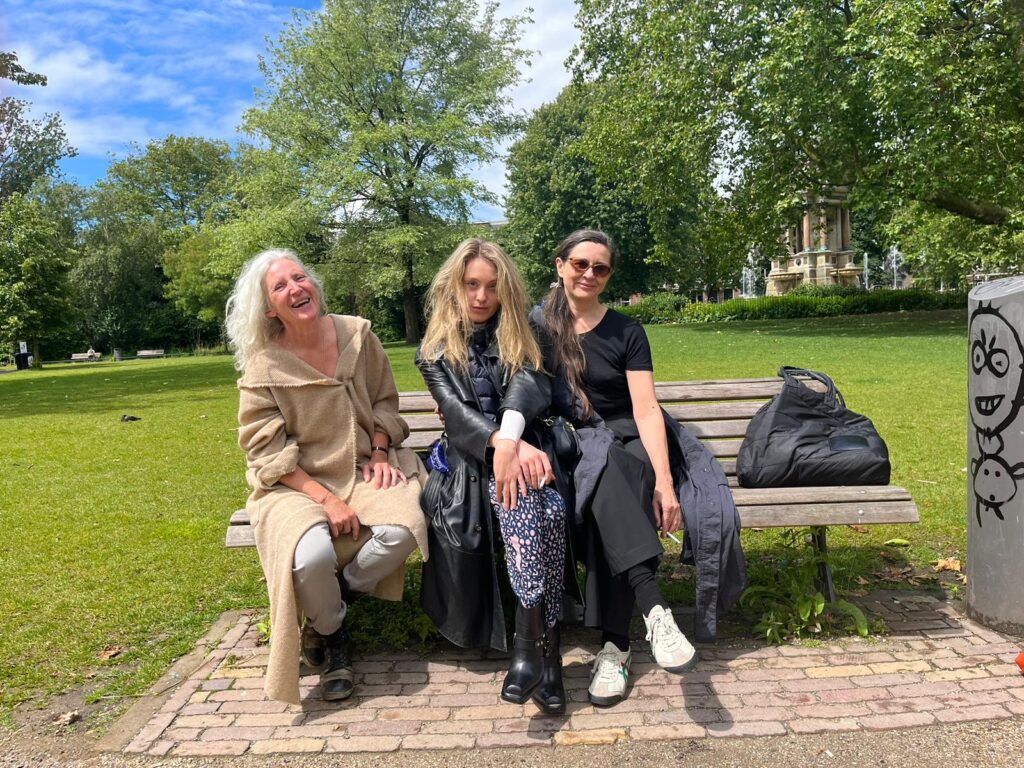
Credit: @flow
For how long have you been sailing on the Vistula river together?
Aga + Ewa – Together we have been making the FLOW for 9 years, since 2016.
What was the original impetus?
Aga – We both had a very strong connection with rivers. We met, knowing about each other, shortly after Ewa invited me to an old type of boat that had been reconstructed, a type of boat that had disappeared from the rivers. This became the first boat on which we sailed.
Do you remember what you did that first time?
Ewa – That first journey together on this traditional boat was in 2015, for a year before we started FLOW. The boat was called SOLNY – it was a type of the flat bottom wooden boat. This was a year when the Vistula river was invited as guest of honour on the Loire Festival in Orleans in France, which was a biennale of traditional boats from all over the world. I wanted to go there through the rivers and canals of Europe, from Poland – it’s about 3.000 kilometres approximately – with other artists. Aga and I went together to Berlin, where there were a few other female artists on the boat. Our mutual friend who had a Foundation Pamoja Razem said “you should make this together” and so we made something together. In those early years we made this happen by using the money from selling our art works.
One year later, July 2016, was the first FLOW journey.
Aga – We started to collaborate with the art institutions in the different cities along the river. The City Gallery of Gdansk was the first partner and we made a one day event, theatre improvisations on kayaks, some concerts and performances. In Warsaw together with the Museum of Modern Art, we made a one day performance where we invited many other boats and musicians and had lots of fresh fruit! Some of the people we worked with in those early years are now working in institutions. For example our first curator from Pamoja is at Cricoteka – The Centre for the Documentation of the Art of Tadeusz Kantor in Krakow. He, and they, will be part of the Liquid Becomings activity when we arrive in Krakow and do a floating pavilion in the city at the end of September.
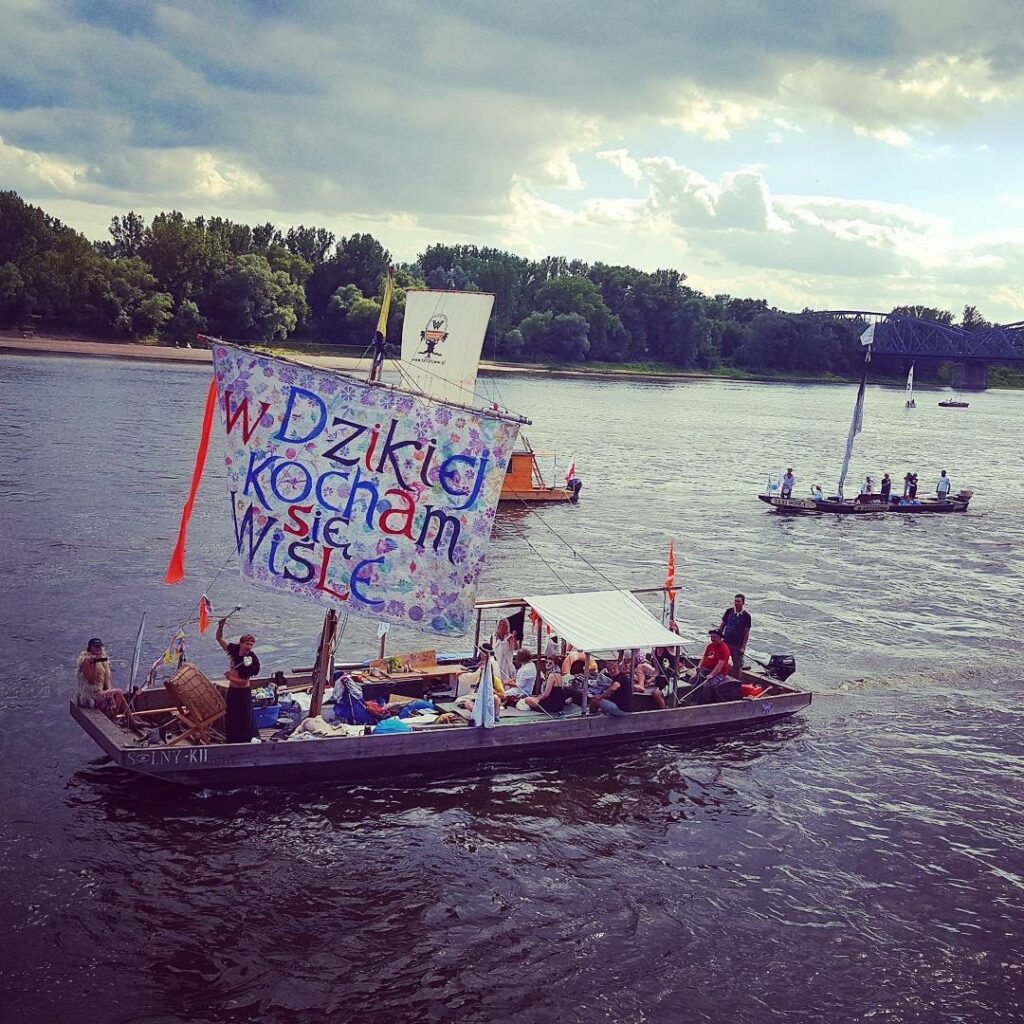
Credit: @flow
What keeps pulling you to the rivers?
Ewa – the river is a completely other place – another planet – somewhere else entirely. There are no conditions that are like this. You can really cope and live with very simple means and undertake simple tasks to stay warm, to be prepared for rain, to wash in nature, to go to the toilet in nature, to behave properly in nature. This is the basis of living when we are on the boat.
Aga – for me it is the quality of the space: being part of the earth and the cosmos and the immense sky and the fact that we are immersed in such a beautiful space together. This space makes the consciousness and mind work in a completely different way. All this luggage we accumulate falls away and real people emerge. In so much of our lives, people are mostly online, contacts are distant. When we are on the river there is no electricity, you can’t use the phone and devices as normal. This creates a quality of having enough time to spend together and the quality of relationship is unlike anything else. Conversations can develop over days, and it’s not even necessary to speak, you just do and follow and be together.
Ewa – the other thing that happens if I can describe it is that the physical borders merge, this liquid environment which is just going through us, dispersing us, infusing us – all of us – there is a physical feeling of being closer to each other and to the nature, to the trees, everything.
We hear you have a new boat for the FLOW sail in 2024, for Liquid Becomings
Ewa – Yes we do. The boat is built in the same model as our old boat and with two masts, but this time it is from a Larch tree – which is really super good for the condition of water and earth. The constructor told us that it can survive for years. Originally we were going to use our old boat and would renovate it. And then the boat builder was grumpy about repairing it, and then one day said “I will make you a new boat for the costs of repairing the old boat”. To rebuild and reconstruct is a big task and there was not much time. The new boat from this Larch tree is amazing.
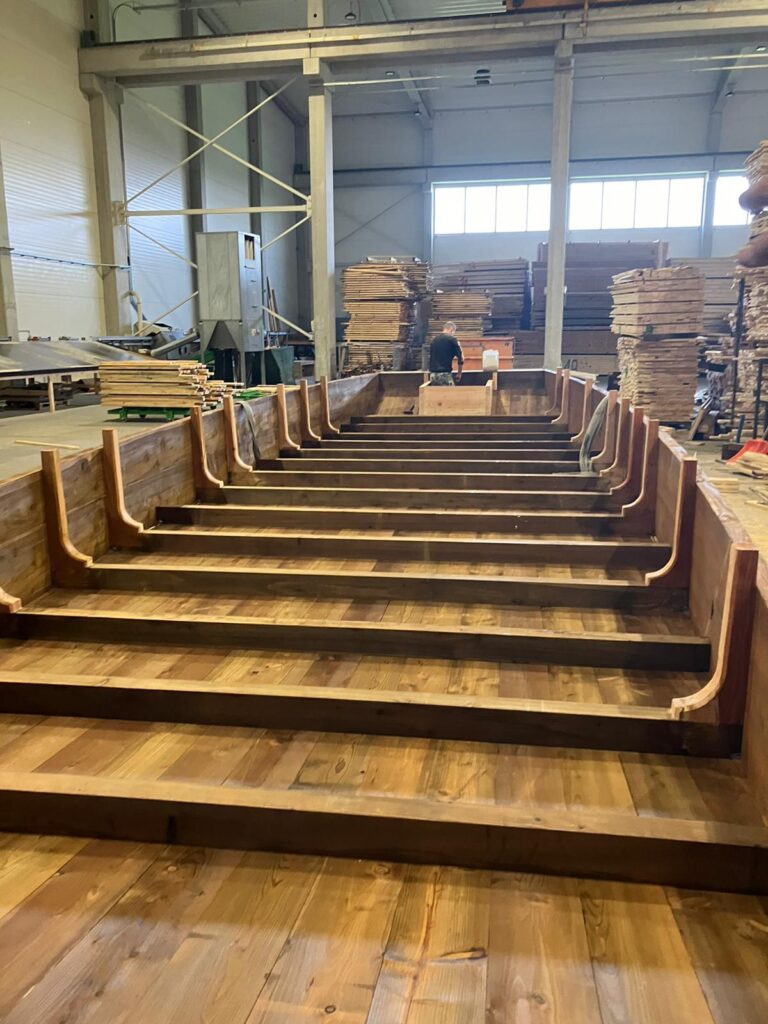
Credit: @flow
You are sailing the boat from 28 June until 4 July from Gdansk to Elblag? Why? What will happen in Elblag?
Aga – Eblag is quite close to Gdansk, and yet it is in a region – Żuawy – with a canal that is connecting the Vistula river and through the river Nogat and then into Elblag. It is a very lovely situation.
The reason we are in Elblag is because together with Emilia Orzechowska and her team at Centrum Sztuki Galeria Elblag we have an exhibition, where we have invited artists who have been part of FLOW since we started to share their work. This is more than 100 artists, and 80 of them will exhibit. The gallery itself is an old gallery from the 60s, situated in the old church – just about the canals. We will arrive in Elblag on the canal and will almost reach the gallery by boat. It’s quite crazy!
Ewa – As well as the exhibition alongside the opening on 4 July we have planned some performances.
Maria is writing an anthem, a hymn/song, that she will sing live via old mobile phones present at the opening. https://mariamagdalena.bandcamp.com/track/rzeka-hymn
There will be a choir connected via a technology connection – this is also something connected to our intimate life these days and we will use it to connect with everyone on a private level. There will be a premiere of the Polish translation of Bodies of Water, which is illustrated with images from Aga’s textiles. With this many artists, it will be a very rich experience.
What are you most looking forward to on the Vistula journey as part of Liquid Becomings?
Ewa – I want to see the river from a different perspective again, a new perspective, a new look. This time we will sail upstream and places will look different. There are people who know us and who know the boat, and they are happy we are coming. There will be a new crew on the boat, which always provides new perspectives. In Krakow there is a big community of artists and creatives who are expecting our event and arrival. We will be in Krakow for several days as the final part and many things will happen.
Aga – For me, once I get on the rivers everything is perfect. I just wait to get on the boat.
Maria – I think this different temporality, of this situation, that creates challenges and usual processes, and makes it much more – somehow art becomes and takes over everything. Permeating everything, the totality of it really interests me. There is nothing else but being there and spending time. We will be in places that we rarely can see, and that no one else occupies. This is an extraordinary and luxurious situation. What has always been crucial for me in this process of Liquid Becomings is the adventure, the openness of it, it’s a dream, anything can happen. It brings a different logic, a different perception, a different temporarily, displacing the usual ways we take part in space and time.
Ewa – On the boat, it is like a small and closed society – a “state of the boat.” It is like in a story, you can both invent – and expect – everything. Something unpredictable which excites me a lot.
Ewa, Aga and Maria will be joined on the Vistula journey starting 30 August by artists: Patryk Zakrocki, Malgorzata Markiewicz, Carola Uehlken, Gosia Kępa, Marta Niedbał, interdisciplinary artist, Sophie Thun, Małgorzata Kuciewicz, Flavia Barbosa Pinheiro and Keli Freitas.
